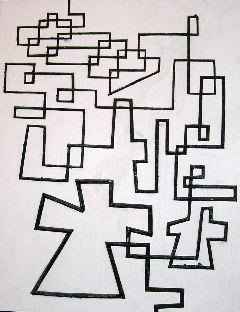A few selections from: Japan, The Ambiguous, and Myself
Nobel Lecture, December 7, 1994
by Kenzaburo Oe
. . . Kawabata talked about a unique kind of mysticism which is found not only in Japanese thought but also more widely Oriental thought. By 'unique' I mean here a tendency towards Zen Buddhism. Even as a twentieth-century writer Kawabata depicts his state of mind in terms of the poems written by medieval Zen monks. Most of these poems are concerned with the linguistic impossibility of telling truth. According to such poems words are confined within their closed shells. The readers cannot expect that words will ever come out of these poems and get through to us. One can never understand or feel sympathetic towards these Zen poems except by giving oneself up and willingly penetrating into the closed shells of those words. . . .
. . . there will always be the danger that there may be a stampeding of people who are sufficiently removed from insanity in enthusiasm for destruction.
(Irish Senate congratulations to Senator Yeats)
. . .As someone influenced by Watanabe's humanism I wish my task as a novelist to enable both those who express themselves with words and their readers to recover from their own sufferings and the sufferings of their time, and to cure their souls of the wounds. I have said I am split between the opposite poles of ambiguity characteristic of the Japanese.
If you will allow me to mention him again, my mentally handicapped son Hikari was awakened by the voices of birds to the music of Bach and Mozart, eventually composing his own works. The little pieces that he first composed were of fresh splendour and delight. They seemed like dew glittering on grass leaves. The word innocence is composed of in – 'not' and nocere – 'hurt', that is, 'not to hurt'. Hikari's music was in this sense a natural effusion of the composer's own innocence.
As Hikari went on to compose more works, I could not but hear in his music also 'the voice of a crying and dark soul'. Mentally handicapped as he was, his strenuous effort furnished his act of composing or his 'habit of life' with the growth of compositional techniques and a deepening of his conception. That in turn enabled him to discover in the depth of his heart a mass of dark sorrow which he had hitherto been unable to identify with words.
'The voice of a crying and dork soul' is beautiful, and his act of expressing it in music cures him of his dark sorrow in an act of recovery. Furthermore, his music has been accepted as one that cures and restores his contemporary listeners as well. Herein I find the grounds for believing in the exquisite healing power of art.
This belief of mine has not been fully proved. 'Weak person' though I am, with the aid of this unverifiable belief, I would like to 'suffer dully all the wrongs' accumulated throughout the twentieth century as a result of the monstrous development of technology and transport. As one with a peripheral, marginal and off-centre existence in the world I would like to seek how –– with what I hope is a modest decent and humanist contribution –– I can be of some use in a cure and reconciliation of mankind.

